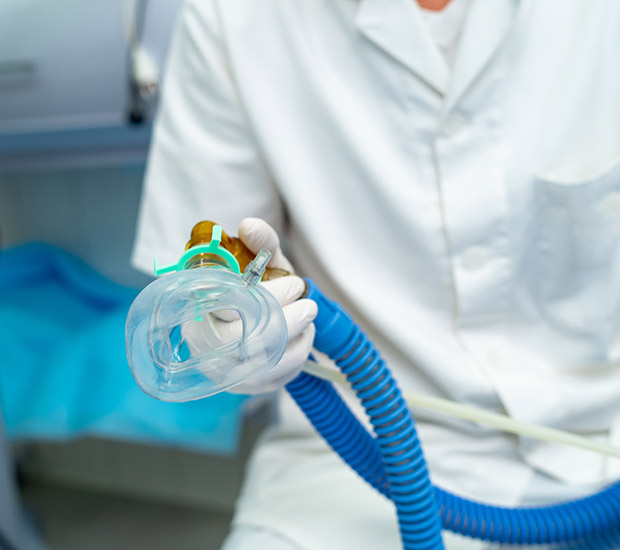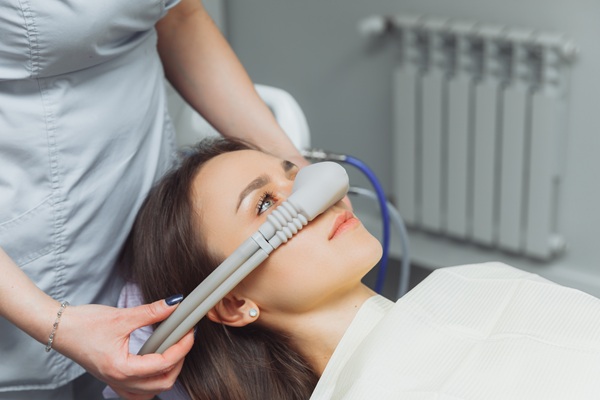Sedation DentistryOnalaska, WI
It is not uncommon for people to feel anxiety about dental appointments, but sedation dentistry can help overcome these reservations. Dental anxiety can keep you from taking care of your oral health by causing you to cancel appointments or delay seeking treatment when issues come up. With the help of sedatives, dentists can make it easier for patients to relax during their appointment and a range of dental procedures.
Understand sedation dentistry
This form of dentistry involves undertaking a therapeutic medical procedure with the administration of sedation to encourage patient relaxation. For a majority of patients, sedation occurs prior to the dental surgery or treatment to reduce anxiety and relieve pain associated with the procedure or appointment. Not everyone is a candidate for this option, and your dentist will do a thorough check on your medical background to avoid potential health concerns and complications. There are several things to understand about this approach to dentistry.
Not an anesthetic
Many people confuse sedation and anesthetics, thinking they involve the same drugs. However, these two classes of medications do not have the same use or effects. The purpose of sedatives is for relaxation, while anesthetics are for numbing the senses and pain suppression. Anesthetics typically render a person unconscious for a procedure, while sedation leaves a patient awake but in a more relaxed state.
No major risks
There are few risks and complications from using sedation. Many of the drugs used have been in use for years, with an abundance of research supporting both the safety and effectiveness of the sedatives. There are different types of sedatives, but your dentist will determine which one is appropriate for your situation depending on the severity of your anxiety. In some cases, sedatives are taken before the appointment, while others are administered while at the office through an IV.
No guesswork
Patients are not left to self-medicate when sedation is used. The drugs are prescribed and administered in specific doses. Dental anxiety is taken seriously and treated with care and concern.
Not frowned upon
Dentists approve of sedation because of the way it supports their practice and ability to care for patients. When patients are calm and relaxed, it is easier for a dentist to work on the teeth and ensure everything is done well. Dentists do not have to worry about stressing out a patient or potentially creating high enough levels of anxiety that a patient will not come back when sedation is used. Years of dental neglect could be addressed in a single appointment when the patient is under sedation.
Not just for dental anxiety
Sedation can help more than those who suffer from dental anxiety over a routine cleaning or who have apprehension about a serious surgery or procedure. Sedation could help patients who have:
- A lot of dental work to be done
- A past with traumatic dental experiences
- Difficulties sitting still
- Sensitive teeth and gums
- An uncontrollable gag reflex
Know how sedation works
There are several different ways to be sedated for a dental appointment. Laughing gas is commonly used to describe nitrous oxide, which is light sedation. Patients inhale the gas through a mask or nasal rod, and within minutes, the gas will take effect and put patients in an awake but relaxed state. There are no post-treatment side effects to worry about with this option. Oral sedatives can also be used, typically administered through a syrup or prescribed pill several hours before your scheduled appointment.
Depending on the strength of an oral sedative, the medication could make you feel drowsy and create enough relaxation that you fall asleep during the dental appointment. This option does not make you unconscious, but because of the lingering drowsy feeling, you will usually need to bring someone to drive you home after the appointment. IV sedation is a stronger sedative that relies on an IV line to push medication into your body. This does cause deep sleep and requires some time to wear off. Patients are advised to have someone drive them home following a procedure with this sedation.
Preparing for sedation
The dentist in charge of your treatment will provide complete instructions on how to prepare for sedation, and the guidelines may vary by the type of sedation being used. Patients are typically advised to refrain from eating or drinking anything several hours before the procedure, although heavier sedation may extend that restriction until midnight before your appointment. Patients are also advised to dress comfortably and refrain from wearing jewelry or anything that could get caught or tangled during the appointment.
If the appointment is in the morning, you will need to take off work for the rest of the day to recover from the effects of the sedation. It is difficult to predict how quickly the body will metabolize the drug out of your system and it is important to not operate machinery, automobiles, or other equipment when recovering from sedatives. This is why bringing a friend or family to your sedation appointment is important. You will need a safe way to get home following your appointment.
Benefits of sedation
If you are approved for sedation, you will find it transforms your dental experience. With sedatives, a dental appointment or complicated procedure can seem less intimidating and lengthy. Patients are typically able to sit through a longer procedure with minimal discomfort when under sedation, allowing the dentist to take care of more serious concerns more quickly. Sedatives also address a fear or anxiety associated with possible pain from the treatment. The medications used in sedation also help minimize pain.
Patients with extreme sensitivities to pain or discomfort or who have a sensitive gag reflex often display heightened responses to such triggers when fear, anxiety, or stress levels are higher. Sedatives remove the stress and calm the nerves as well as address pain and a sensitive gag reflex.
Conclusion
If you are interested in sedation dentistry, talk to your dentist about available options. It can make oral health easier to maintain.
Request an appointment here: https://siegertdental.com or call Siegert Dental at (608) 394-3943 for an appointment in our Onalaska office.





